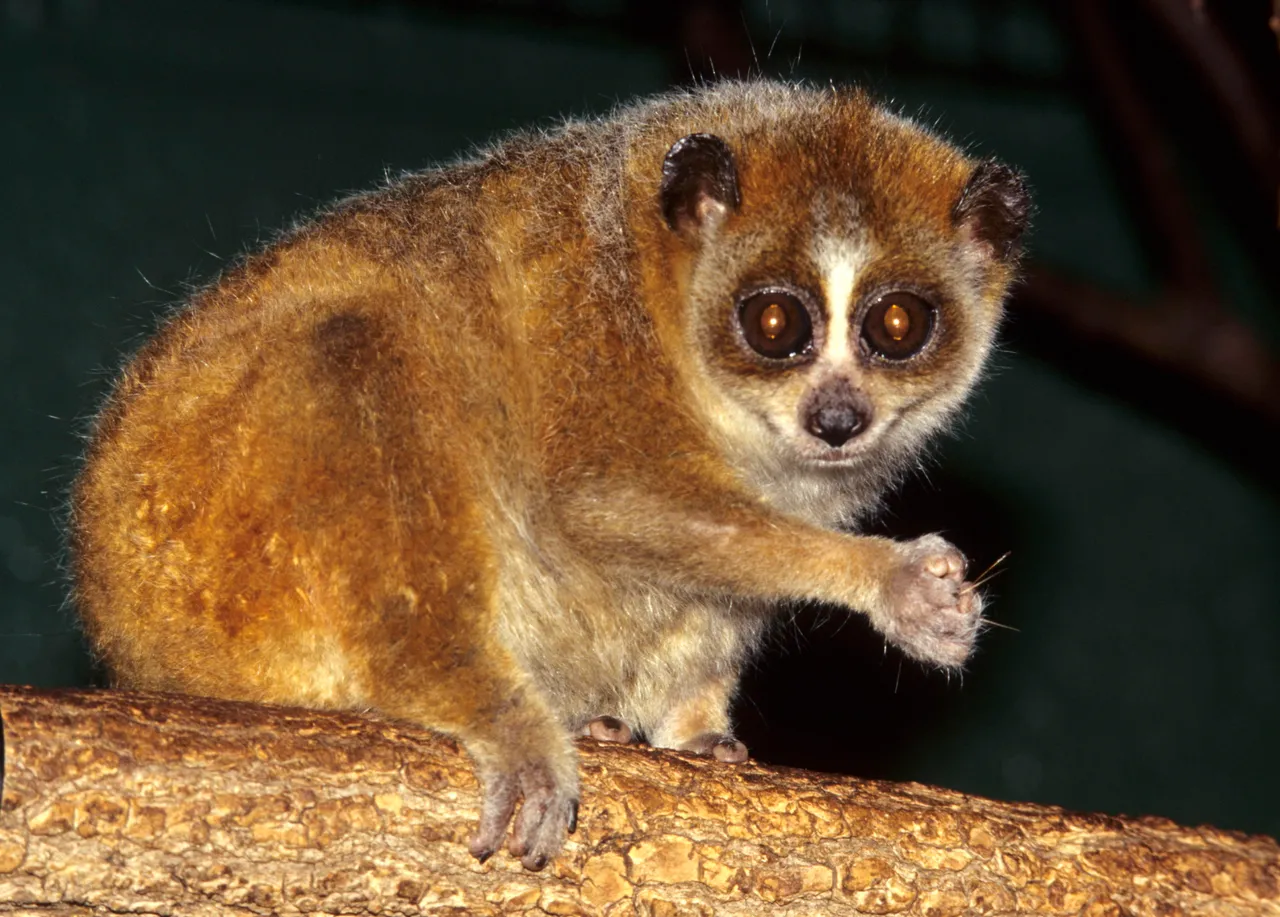Whereas in 2005 there were only three species of Plumploris, eight have now been described - four of them alone live in the forests of Borneo. The rarest is probably the Java Plumplori (Nycticebus javanicus), which is classified as acutely threatened with extinction on the International Red List.
The small nocturnal tree inhabitants are among the few poisonous mammals. They produce a secretion that is toxic in combination with saliva - enemies are driven away by bites. In addition, they rub their fur with the poison and lick their young to protect them. Since Plumploris are quite defensive with their poison bite, animal traders often pinch their canines off - a reason why confiscated monkeys cannot be released again and again.
Plumploris multiply very slowly: After six and a half months of gestation, the females get a young; twins are extremely rare. In the beginning, the baby accompanies the mother on the rambles, later the mother leaves the young animal behind in the branches: To protect it from predators, she licks it off with the poison secretion. The males are territorial and pee on their hands; thus they spread a scent trace in the trees when climbing, which shows other animals: This area is already occupied.
They are not only threatened by habitat loss - their cute appearance and fatal superstition are also their downfall: they are coveted in the illegal pet trade, and in traditional Asian medicine their fur is also regarded as a miracle cure for wound healing.
